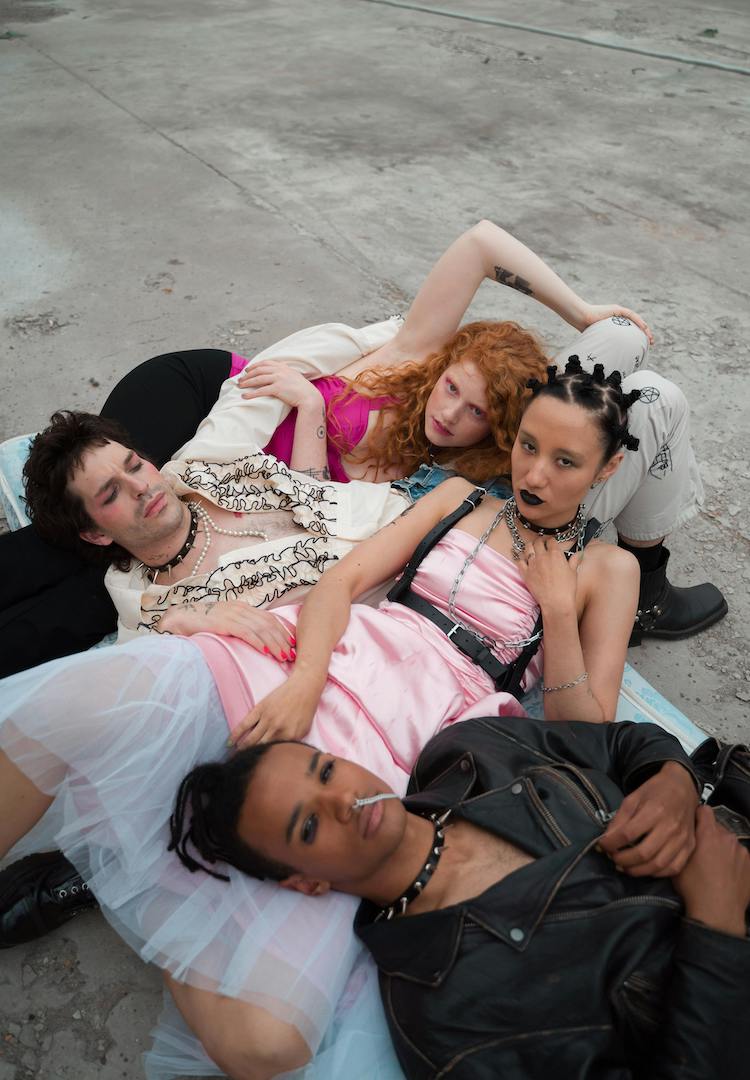What is a polycule and how does it work? A polyamorous educator weighs in
WORDS BY FASHION JOURNAL
“It’s not just a series of casual, disposable relationships.”
If you’re a single person using dating apps right now, you might be familiar with the term ‘non-monogamy’ or ‘NM’. Often misunderstood, it’s an umbrella term that encompasses relationships that aren’t sexually or romantically exclusive, often prefixed with ‘consensual’ or ‘ethical’ to differentiate it from cheating.
Under the NM umbrella sits labels like ‘open’, ‘swingers’ and ‘polyamorous’, with the latter typically referring to relationships that include a romantic or emotional aspect (as opposed to just sexual). Put simply, there are so many different ways to practise non-monogamy.
Interested to hear how others navigate the world? Head to our Life section.
As intersectional polyamorous educator Michelle Hy says, “Non-monogamy is a wide spectrum, so discrete labels don’t always fit every structure or dynamic neatly. It’s always good to clarify rather than assume.”
An important definition to understand is ‘polycule’, referring to the web of connections within polyamorous relationships. Below, Michelle talks about what a polycule looks like, and the different dynamics that can exist within a non-monogamous relationship network.
Can you explain what a polycule is within a polyamorous relationship?
A polycule is a common term for a network of people in non-monogamous relationships with each other and their partners. Not all of these people are in direct relationships with one another. For example, a ‘metamour’ (or meta) in [a] polycule is one of your partner’s partners. Another common alternative to [a] polycule is ‘constellation’.
What are some of the different dynamics that can exist within a polycule?
Non-monogamy exists on a spectrum with so many different variations. Some more common styles include ‘kitchen table polyamory’, ‘garden party polyamory’ and ‘parallel polyamory’. Kitchen table polyamory is where people in the polycule interact with one another (either romantically, sexually and/or platonically).
Garden party polyamory refers to polycules where different partners and metas primarily only meet during special occasions (like birthdays, weddings, other celebrations, etc). And parallel polyamory refers to having relationships where the different partners and metamours don’t tend to meet.
Can you explain the difference between hierarchal and non-hierarchal polycules?
Hierarchy in non-monogamy refers to having a ranking system for your partners. Some people prefer having a primary partner followed by secondary partners. In this case, the ‘primary’ relationship comes first, creating a hierarchy. In non-hierarchical networks, there are no primary partners and more emphasis is put on equity across the relationships. Non-hierarchical non-monogamists are often relationship anarchists.
For those who are curious, what’s some advice you would give before entering a polyamorous relationship or polycule?
Do your homework – whether it’s reading books and articles, listening to podcasts, attending meetups, or following non-monogamous accounts on social media. Do a self-inventory about your boundaries. [Ask yourself,] ‘What do I want in a relationship? What are my negotiables and non-negotiables? What are my values and what is my style of relating?’ And remember, when you become part of a polycule, you do not have to have a relationship with your metamours if that isn’t your style of non-monogamy.
What are some misconceptions surrounding polyamory and polycules?
Polyamory is much broader than is commonly represented and is much more mundane, like most relationships. It’s not just a series of casual, disposable relationships. Polyamory is as much about commitment and trust as monogamy is.
It’s no better or worse in general, but it is better or worse for different people. Also, it’s not just a lifestyle; it’s a relationship orientation for many. And finally, polycules aren’t always having orgies – though some of them certainly are.
For more on practising ethical non-monogamy, head here.










